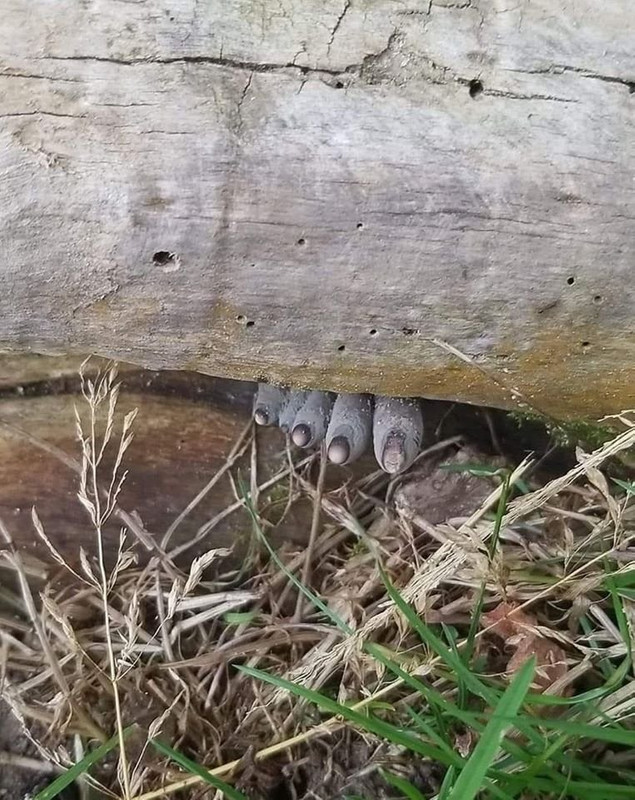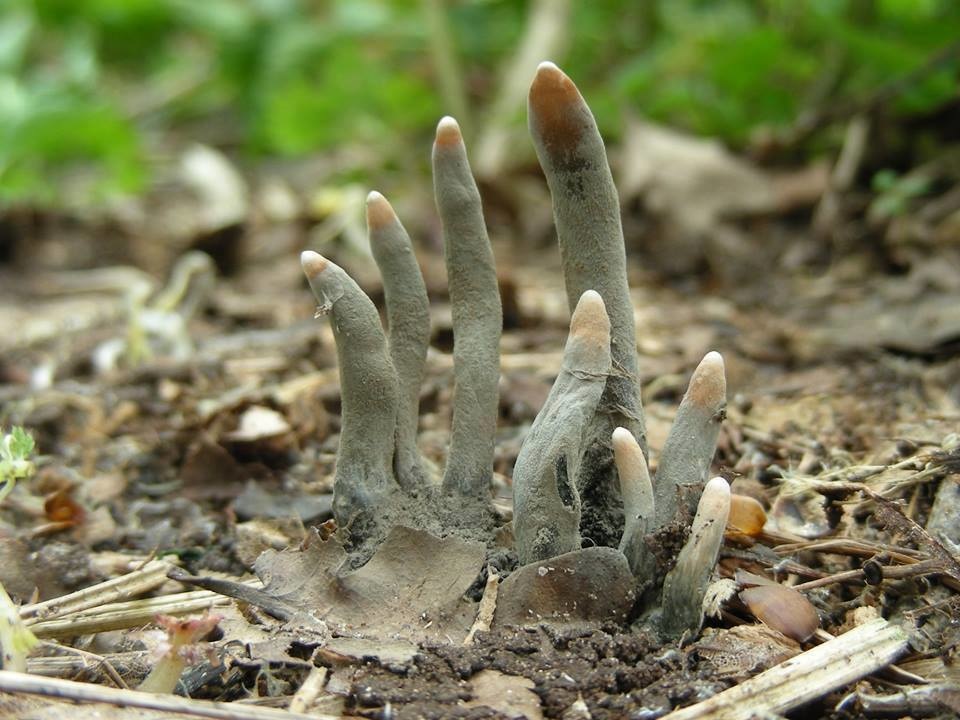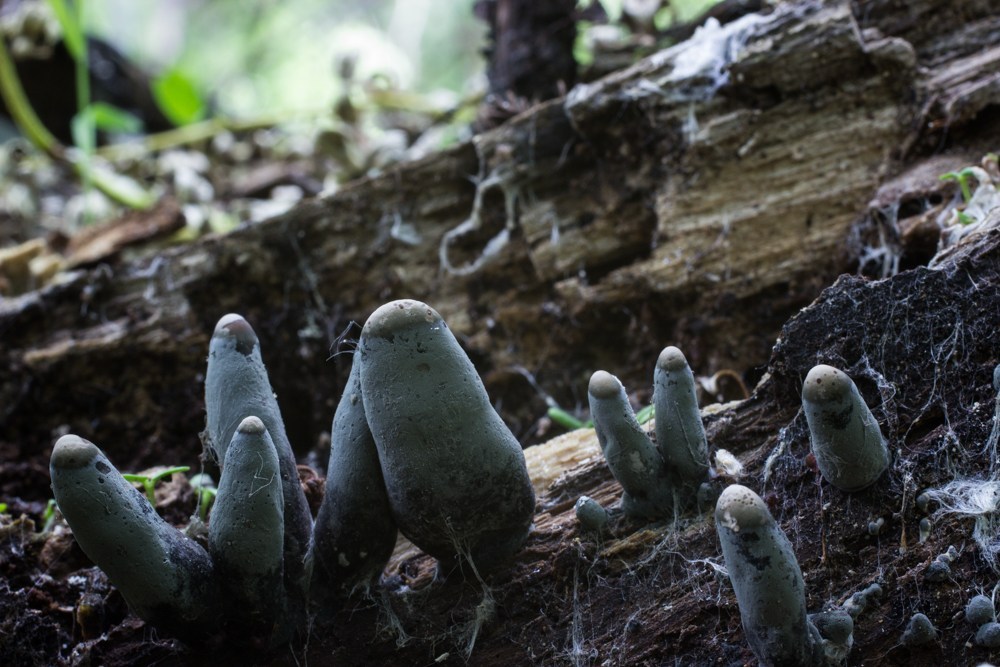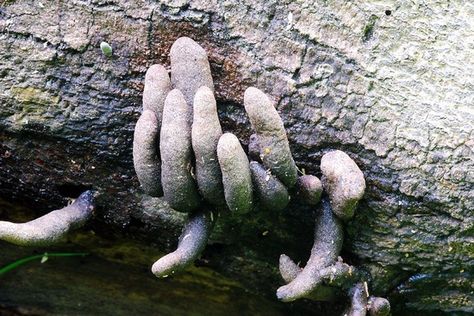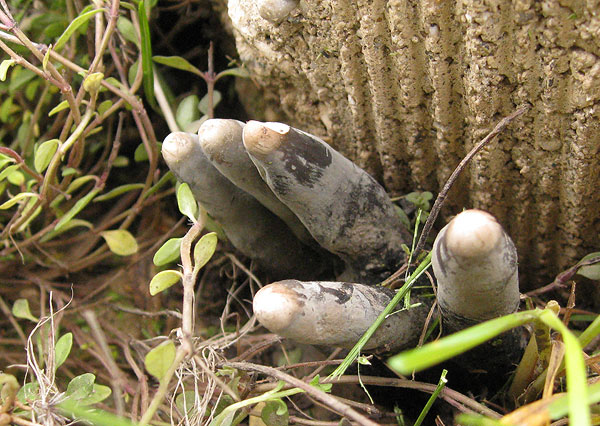The Internet Is Spooked By This Picture Of 'Dead Man's Toes'. But It Isn't What It Seems
What would you do if you saw this while hiking?
A creepy photo of what seems to be greyish-blue human toes peeking from underneath a forest log has been making rounds on social media
One of the earliest posts we found was shared by Twitter user @JohnDFowler on 13 June.
He revealed that the 'toes' are not a cause for alarm and are actually Xylaria polymorpha fungi that are commonly found on forest floors.
Despite the reveal, his tweet garnered over 8,000 likes, with many netizens still getting creeped out
If you are as curious as that last guy, here are some facts we discovered about this strange-looking growth:
1. They're actually commonly called Dead Man's Fingers, not toes
According to wildlife identification guide First Nature, Xylaria polymorpha is aptly named so because it usually arises in clusters of three to six 'fingers' that reach toward the sky.
They are also commonly mistaken as human digits as they measure from 4cm to 14cm long and range from 1cm to 3cm in diameter.
When young, they also have white fingernail-like tips that make them look more like corpse fingers clawing out from the ground.
2. The mushrooms change in colour depending on their stage of life
When young, they are pale blue in colour with white tips that are actually the mushroom's asexual spores.
As they continue to age, the bluish colour deepens all the way to black before eventually drying out and dying.
They look the most creepy when their fully-developed spores have also turned dark brown.
3. They are usually found in forests growing from the base of rotting trees and decaying wood
Xylaria polymorpha is a saprobic fungus, which means they survive by decomposing dead or decaying organic material and absorbing that as food.
The fungus has a preference for growing on rotting apple, maple, beech, and elm trees, and will never invade healthy wood.
4. So, no, they are not edible
First Nature states that these mushrooms are not generally considered edible for its hard and wood-like texture.
However, if you accidentally ever do eat them, some websites note that they are not toxic.
